Meet the incoming class of UVic Law graduate students
October 30, 2025
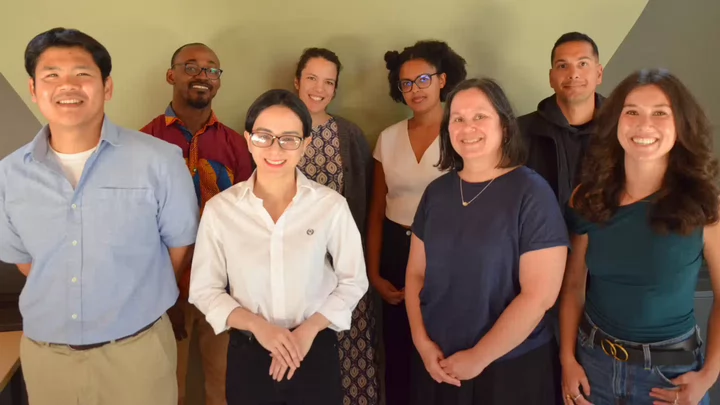
Each year UVic Law welcomes a new class of PhD and LLM students to the law school. These nine graduate students are the latest — researching a diverse range of legal issues including Indigenous law, gentrification, intellectual property protection, terrorism law, and more. Learn about the research of the latest cohort of UVic Law graduate students below.
Benjamin Ajabuin
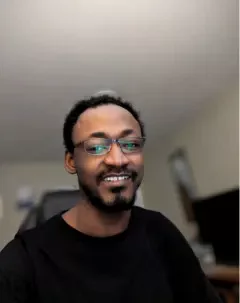
PhD in Law and Society
Thesis: Contours of change: gender, customary law and land tenure among the bulsa of Northern Ghana.
Supervisor: Dr. Estair Van Wagner
Research Summary: My PhD research aims to critically examine the interplay of spatial dynamics, legal systems, customary practices, policy interventions, and social actors in shaping land tenure transformations and gender restrictions. Specifically, I focus on the gendered dimensions of land ownership and access among the Bulsa people of Northern Ghana. Drawing upon both historical legal analysis and modern property rights theory, I seek to understand the processes through which land rights have been acquired, the evolving nature of these rights, and the role of law and custom in mediating such transformations.
Ultimately, my research aspires to contribute to the articulation of a decolonial future for land laws in Ghana – one that foregrounds African Indigenous epistemologies, gender equity, and historical justice.
Paron Boonchoy
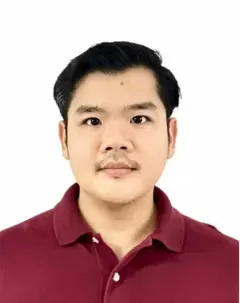
PhD in Law and Society
Thesis: Law, gentrification, and the right of the city: regulating inclusive local development in Chiang Mai.
Supervisor: Prof. Deborah Curran
Chiang Mai, promoted as a “City of Life and Prosperity,” has been developed through tourism-centered policies to boost income and rival Bangkok’s dominance. While this has increased revenue and urban expansion, development has been concentrated in the old town and surrounding districts, prioritizing beautification and investment over residents’ needs. Policies often neglect affordable housing, public participation and equitable access to resources, instead favoring external investors. This has led to gentrification, where locals face land expropriation, displacement, rising real estate prices, traffic, and pollution. The core problem is whether tourism growth truly benefits Chiang Mai residents or primarily outside capital. The thesis will delve into Chiang Mai's development regulations to investigate the problems, legal limitations, and social and political influences that prevent Chiang Mai's development from distributing benefits to all resident groups in the city.
Thi Hong Ninh Bui (Ninh)

PhD in Law and Society
Thesis: Intellectual property protection of traditional cultural expressions: a comparative analysis between Canada and Vietnam.
Supervisor: Prof. Robert Howell
Research summary: Traditional Cultural Expressions (TCEs) embody the living cultural heritage of Indigenous peoples, manifesting through diverse creative forms including traditional songs, artistic works, ceremonial practices, handicrafts, oral narratives and dance traditions. These expressions serve not only as vehicles for cultural preservation but as vital links between generations within Indigenous communities. As globalization accelerates and digital connectivity expands, protecting these cultural assets has become increasingly urgent, particularly in the face of rising commercial exploitation and cultural appropriation.
The research is a focused comparative analysis of intellectual property protection mechanisms for TCEs between Canada and Vietnam, two countries with distinct legal traditions and cultural contexts, to identify gaps, challenges, effective strategies for protection and opportunities for mutual learning and improvement between the two jurisdictions.
Jaynaya Dwyer
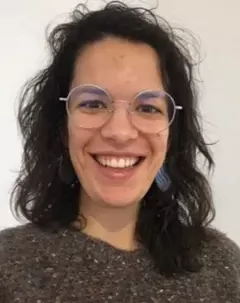
LLM in Law and Society
Thesis: Developing models of university governance towards Indigenous justice agendas.
Supervisor: Dr. Darcy Lindberg
Research summary: In the context of formal negotiations being underway in Victoria towards Australia’s first Indigenous-Settler Treaty, this thesis asks what treaty traditions might offer us to inform governance practices in Australia’s public Universities, taking research centres focusing on Indigenous legal knowledges as case studies. This research is informed by my experiences as a settler early-career legal academic working at the Indigenous Law and Justice Hub at the Melbourne Law School. The contestation of this work draws me to interrogating where Universities with deep colonial entanglements label parts of themselves as Indigenous institutions or make claims around self-determination. I explore how centres navigate tensions between stated commitments to work in support of Indigenous aspirations, self-determination and enhance Indigenous presence in the institution, and the formal governance arrangements which can operate to concentrated power and resources with non-Indigenous University leadership. I seek to explore case studies of governance models and practices which do more to enable expressions of Indigenous governance within public Universities.
Joshua Egginton
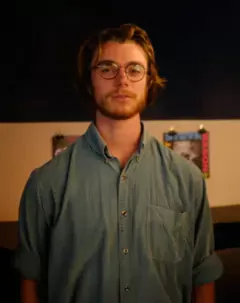
PhD in Law and Society
Thesis: How can the practical mechanisms underlying rights of nature cases aid reconciliation between peoples and place?
Supervisor: Dr. Alan Hanna
Research summary: There’s a Thomas Berry quote that found me recently. ‘We are talking only to ourselves. We are not talking to the rivers, we are not listening to the wind and stars. We have broken the great conversation’. This is where I see western civilisation. And whilst I see some efforts to start listening again, they need help. Help from those that never stopped listening. My work explores Rights of Nature cases as an avenue for returning to the conversation we no longer hear. It knows this avenue is limited and looks to acknowledge that rights is not necessarily the best language. But it sees potential in their on-the ground implementations, in the mechanisms that give voice to Peoples and Places silenced. I think there’s much power in these practical methods here, much more than any declaration of words. It is, after all, the listening we’re missing - and listening is a skill, a practice. My hope is that, in respectful learning of this listening, we can (in some small way) start building bridges back from a world so deeply separated from the Places it lives on and with.
Gabriele Liao-McPherson

LLM in Law and Society
Thesis: On “fitting in”: law, empire, and the formation of the self. (Alternative title: liberalism is my abusive father).
Supervisor: Prof. Gillian Calder
Research summary: Gabby’s work explores cultural and legal hegemonic power through an examination of liberal constitutionalism as a node and technology of empire. She employs critical anti-colonial, feminist, and queer psychoanalytic lenses to study the ways in which the (here, settler colonial) state seeks to construct a particular kind of liberal subject, to uphold and reproduce its hegemony. Their research will discuss how, in the settler colonial Canadian context, the state attempts to craft a particular liberal ‘subject’, while concurrently attempting to interrupt Indigenous lifeworlds. She plans to primarily focus on how this is accomplished through state policies targeting children, child development, family structures, etc. They are particularly interested in how cultures and systems of oppression manifest at macro- and micro- levels, and in exploring the parallels and linkages between societal structures of oppression and interpersonal relational harm (e.g. abuse). In that vein, she is also interested in the linkages between authoritarian forms of parenting or childrearing, and state descents into fascism.
Nathaniel Sukhdeo
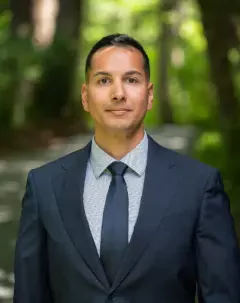
PhD in Law and Society
Thesis: Modernizing Canada’s democratic institutions: transsystemically learning from the Kayanerenkó:wa and the Haudenosaunee Confederacy.
Co-supervisors: Dr. Sarah Morales and Dr. John Borrows
Research summary: How can Canada and Ontario address apathy in an increasingly polarized climate by reforming decision‑making in Federal and Provincial Westminster systems — learning from the world’s oldest living participatory democracy, the Haudenosaunee Confederacy’s Great Law of Peace (Kayanerenkó:wa)?
Kayanerenkó:wa offers enduring governance wisdom: decisions are made collectively, with the well‑being of future generations in mind. Bringing its principles into Canadian democratic structures could strengthen trust in Canadian institutions, increase federal and provincial civic participation, and support reconciliation in practice.
This research will through case studies produce a set of practical legislative and policy recommendations for modernizing Canadian democratic institutions, grounded in the transsystemic application of the Haudenosaunee governance system and legal orders to the Canadian and Ontario Westminster models.
Bethlehem Tesfay (Bety)

LLM in Law and Society
Thesis: Exploring exclusionary laws and differing standards of safety in Canadian terrorism law.
Supervisor: Dr. Victor V. Ramraj
Research summary: My thesis examines how terrorism laws in Canada over-police and under-protect certain communities through a system of racialized fear fortifying structures of supremacy and exclusion. I start by asking how racial prejudice has shaped the definition, interpretation and application of “terrorist activity” in Canada. Second, I ask if reform is possible to meaningfully mitigate the racism or the othering of certain communities or is exclusion an intrinsic feature of how “terrorist activity” is defined. Would an expansive legal approach to terrorism be more just, and would we be safer for it? This work challenges historical and contemporary accounts/understandings of terror and securitization, exploring who is “deserving” of safety and what safety looks like.
Tracey Whare

PhD in Law and Society
Thesis: Te Ara o Tukutuku Pūngāwerewere: A path to strengthening and reestablishing tikanga Māori as an independent normative legal order.
Supervisor: Dr. Val Napoleon
Research summary: My research will consider how to reinvigorate and rebuild tikanga Māori as a distinct normative legal order. I want to identify and detail what is required to make this a reality. Tikanga Māori is broadly defined as the collection of principles and values which stem from a Māori understanding of the world and whose primary purpose is to maintain balance and cohesion by regulating the behaviour of individuals and collectives. I want to engage in research that provides opportunities for Māori communities to reimagine their legal relationships and find legal solutions that are sourced in tikanga Māori. Finally, this research is an opportunity to consider what the practice of tino rangatiratanga (self-determination) could look like. This is a term referenced in article 2 of te Tiriti o Waitangi. It encapsulates the prior sovereignty and authority Māori once exercised and also provides for Māori communities to determine their collective destinies in the present and future.
